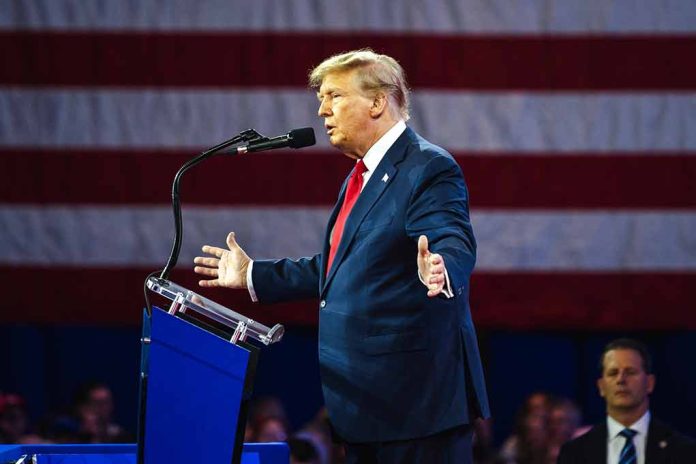
The Trump administration slashes USAID’s media subscriptions, redirecting $8 million in taxpayer funds and sparking debate on government spending and media relations.
Key Takeaways
- USAID’s taxpayer-funded subscriptions to news outlets like Politico and The New York Times have been terminated.
- Over $8 million in government contracts to Politico LLC through USAID have been exposed and discontinued.
- The Department of Government Efficiency, led by Elon Musk, is overseeing the cancellation of these payments.
- This move is part of a broader initiative to scrutinize federal spending and ensure fiscal responsibility.
- The decision has reignited debates on media bias and the role of government funding in journalism.
Trump Administration Takes Aim at Media Subscriptions
In a bold move to enhance oversight of government spending, the Trump administration has decided to discontinue USAID’s taxpayer-supported subscriptions to major news organizations. White House Press Secretary Karoline Leavitt announced the termination of these subscriptions, which had cost taxpayers over $8 million.
According to USASpending.gov, Politico LLC received $8.2 million from USAID through 237 transactions. The Associated Press and The New York Times were also beneficiaries of this taxpayer-funded subscription service. This revelation has sparked outrage among conservative commentators and fiscal hawks who view it as an inappropriate use of public funds.
— Zvi Mowshowitz (@TheZvi) November 18, 2024
Department of Government Efficiency Takes Action
The Department of Government Efficiency (DOGE), under the leadership of Elon Musk, has been tasked with canceling these payments. This move is part of a broader effort to scrutinize federal spending and ensure that taxpayer dollars are used responsibly.
“I can confirm that more than $8 million in taxpayer funds, which were essentially used to subsidize subscriptions to Politico, will no longer be happening,” stated Karoline Leavitt. “The DOGE team is working on canceling those payments now.”
This decision has raised questions about the ethical implications of government-sponsored media subscriptions and the potential influence such funding could have on journalistic integrity. Critics argue that these subscriptions could create a conflict of interest, potentially compromising the media’s role as a watchdog of government actions.
Implications for Media Outlets and Journalism
The termination of these subscriptions has significant implications for the affected media outlets, particularly Politico, which now faces the challenge of finding alternative revenue sources. This development comes at a time when Politico has reportedly been experiencing financial difficulties, including a missed payroll.
“This is a whole government effort to ensure that we are going line by line when it comes to the federal government’s books,” Leavitt explained, emphasizing the administration’s commitment to fiscal responsibility.
The decision has reignited debates on media bias and the role of government funding in journalism. Supporters of the move argue that it promotes a more independent press, while critics worry about potential impacts on media diversity and access to information.
Broader Implications for Government Spending
This action is part of a larger trend in the Trump administration’s approach to government spending. Recently, the administration briefly froze all federal grant spending, affecting numerous nonprofit organizations with government contracts. While the freeze was short-lived, lasting only two days before being rescinded, it highlighted the vulnerability of many organizations to sudden changes in government policy.
“It just injects such a significant element of uncertainty,” said Sharon Content, executive director of Children of Promise, NYC. “How do we plan, long term?”
As the Trump administration continues its efforts to streamline government spending, the media subscription cuts serve as a clear message about its priorities. While some applaud these measures as necessary steps towards fiscal responsibility, others worry about potential unintended consequences on journalism and public access to information. The ongoing debate underscores the complex relationship between government funding, media independence, and public interest in a democratic society.
Sources:
- White House ends USAID’s taxpayer-funded news media subscriptions
- Trump’s Attempt to Freeze Grant Funding Leaves Nonprofits Reeling – The New York Times
- Politico Loses Government Funding After $8 Million in Contracts Are Exposed | Education



